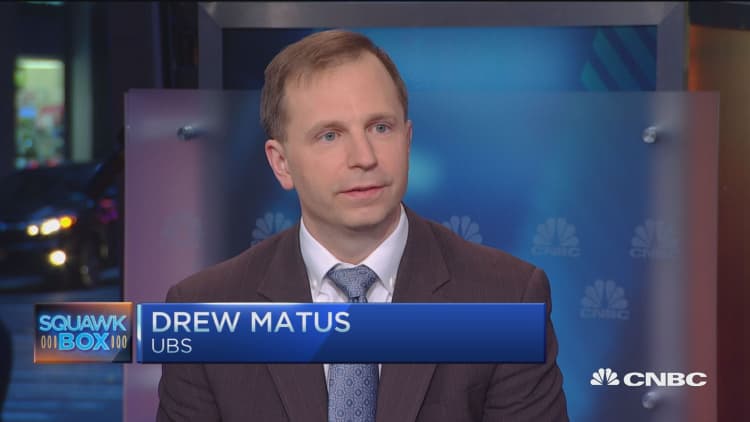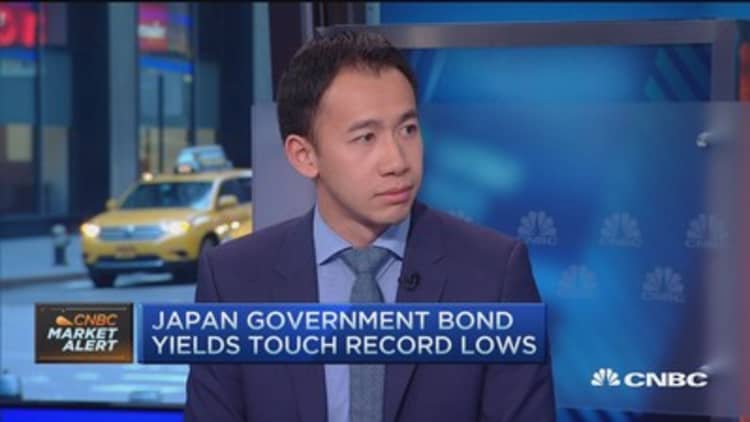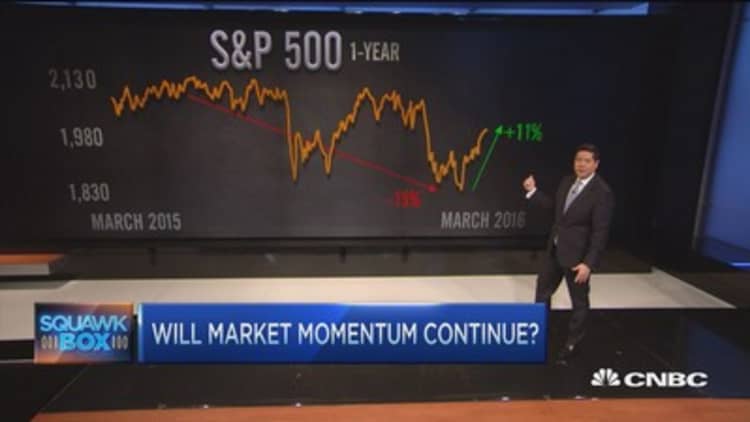


Higher interest rates would provide a backdrop to stop the "crazy volatility" in markets, Steinberg Global Asset Management's co-founder and chief investment officer said Tuesday.
Low interest rates are typically seen as supporting equity prices because investors seeking higher yields they cannot get in bond markets pile into stocks. But cheap money in today's low interest rate environment is not healthy, Richard Steinberg told CNBC's "Squawk Box" on Tuesday.
"Traders in the short run have hijacked this market. You're seeing moves in crude or in equity prices, other commodities that could be the move of a year happening in a day or two," he said.
Steinberg made his comments one week before the Federal Reserve's policymaking committee meets to discuss rates, and following a five-day rally U.S. stocks. U.S. crude surged 5.5 percent to nearly $38 a barrel on Monday, its biggest one-day gain since early January.
Investors do not expect the Fed to hike rates next week, but they are waiting for clues about further rate increases following an initial 25-basis point bump in December, the first in nearly a decade.
While it's important for investors to have a grasp of the Fed's trajectory, higher rates would not necessarily derail stocks, Steinberg said. If 10-year Treasury rates were to rise to 2.25 to 2.5 percent from about 1.8 percent today, they would be roughly in line with the yield, he noted.
Drew Matus, chief economist at UBS, said a couple of 25 basis-point rate increases would help more than they would hurt.
"Maybe, just maybe, if rates were just a little more normal, people would act a little more normal," he told "Squawk Box."
With unemployment sitting at 4.9 percent and inflation indicators advancing toward the Fed's 2 percent target, the central bank should — but won't — tighten monetary policy next week, he added.
"If I was a Fed official and the balance sheet was at $4 trillion, and I was sitting at 25 basis points, and unemployment was below 5 percent and dropping, and inflation was approaching where I thought it should be and rising, I would think I would raise rates at that point," he said.
But the Fed is facing a tricky dollar call, said James Liu, global market strategist at JPMorgan Funds.
With central banks around the world easing policy, some fear the dollar will rise as foreign currencies fall. That would essentially tighten monetary policy in the United States, obviating the need for the Fed to hike rates to some degree.
"It's a question of whether emerging markets and other global economies can stabilize. If they do show a little bit more stability … then that would actually help the dollar depreciate," he told "Squawk Box."



